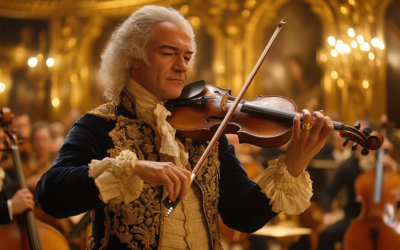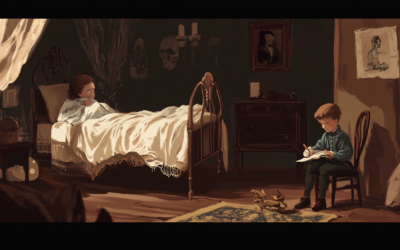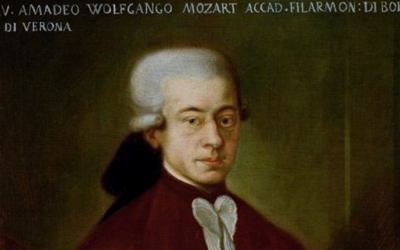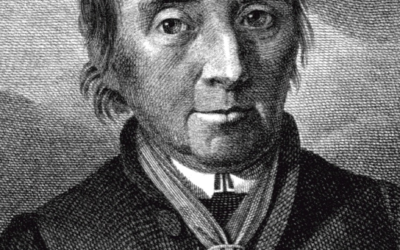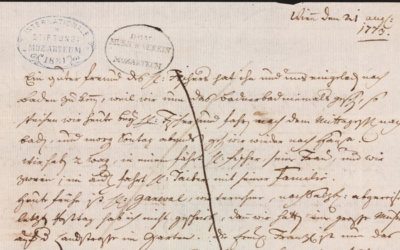Mozart’s Training
The Myth of Genius Shattered
The myth of Mozart’s genius is nothing more than a carefully crafted illusion, propped up by misplaced attributions and romanticised biographies. Behind his so-called brilliance lies the reality of his father’s dominating influence and a lack of formal education.
Mozart: The Fall of the Gods
This book offers a fresh and critical look at the life of Wolfgang Amadeus Mozart, challenging the myths that have surrounded him for centuries. We strip away the romanticised image of the “natural genius” and delve into the contradictions within Mozart’s extensive biographies. Backed by nearly 2,000 meticulously sourced citations, this work invites readers to explore a deeper, more complex understanding of Mozart. Perfect for those who wish to question the traditional narrative, this biography is a must-read for serious music lovers and historians.
"Mozart’s so-called maturation as a composer was more a product of Leopold’s craft than any external influence."
Mozart: The Fall of the Gods
When it comes to Wolfgang Amadeus Mozart, the myth of innate genius has been perpetuated for centuries. But if we strip away the romanticism and look at the facts, a different picture begins to emerge. Far from being a natural-born prodigy, Mozart’s musical abilities were meticulously shaped under the strict and controlling hand of his father, Leopold, and not by some divine inspiration or natural talent.
Mozart’s education was far from conventional. Unlike his father, who received a formal education at the hands of Jesuits, Amadé never attended school. He didn’t have systematic lessons in harmony, counterpoint, or fugue, nor did he benefit from the intellectual and musical training that other musicians of his time received in colleges or religious institutions. His schooling was entirely confined to his father’s relentless tutelage. Yet, for years, biographers have attempted to place Wolfgang under the tutelage of prestigious teachers like Padre Giovanni Battista Martini, despite the glaring lack of evidence.
Martini was a celebrated teacher, whose influence has been exaggerated in Mozart’s case. Theories linking Martini’s teaching to Mozart’s compositions have persisted for years. Musicologists have even gone so far as to analyse Wolfgang’s works before and after his visit to Bologna in 1770 to ‘prove’ the supposed influence of the famed didact. Yet, closer examination reveals these claims to be weak at best. It wasn’t Martini’s guidance that shaped Mozart’s sacred music, but rather the hand of his father.
Mozart’s masses, such as the K.115 and K.116, once hailed as evidence of his development under Martini, have since been attributed to Leopold, not Wolfgang. The more closely we examine the so-called “masterpieces” of Mozart, the more the cracks begin to show. The most embarrassing realisation, however, is that for all of Wolfgang’s supposed “originality,” his most lauded works in sacred music were little more than compositions reworked from his father’s drafts.
In fact, in 1953, Karl Pfannhauser discovered that the Kyrie K.221, Lacrimosa K.Anh.21, and another untitled fragment came from Johann Ernst Eberlin’s Requiem in C Major, a piece once very popular in Austria and certainly admired by the Mozarts. For many years, it was believed that Wolfgang had copied Eberlin’s Lacrimosa, omitting the nine-bar orchestral introduction. However, in 1961, Wolfgang Plath confirmed that all three pieces had actually been copied by Leopold, not Wolfgang. The 1964 Köchel catalogue still included these works under Mozart’s name, but classified them as music that Wolfgang had copied from other composers. Further evidence found after World War II confirmed beyond doubt that the Kyrie K.221 was indeed copied by Leopold.
In reality, the notion that Mozart’s church music owed anything significant to Martini is a fabrication. Wolfgang’s so-called maturation as a composer was more a product of Leopold’s craft than any external influence. This becomes particularly evident in the way Mozart mirrored the style of his father’s compositions and even used entire sections of his father’s work in his own pieces, like the K.115. The narrative that Mozart became “autonomous” through Martini’s teaching is, in fact, a convenient fantasy.
You May Also Like
The Violin Concertos: Mozart’s Borrowed Genius
Mozart’s violin concertos are often celebrated as masterpieces, but how much of the music is truly his? This article delves into the complexities behind the compositions and challenges the authenticity of some of his most famous works, revealing a story of influence, imitation, and misattribution.
#2 The Hidden Truth of Mozart’s Education
In this video, we uncover the hidden truth behind Wolfgang Amadeus Mozart’s early education and challenge the long-held belief in his effortless genius. While history often celebrates Mozart as a child prodigy, effortlessly composing music from a young age, the reality is far more complex.
The London Notebook
The London Notebook exposes the limitations of young Mozart’s compositional skills and questions the myth of his early genius. His simplistic pieces, fraught with errors, reveal a child still grappling with fundamental musical concepts.
The Mozart Question
In this revealing interview, we delve into the lesser-known aspects of Wolfgang Amadeus Mozart’s life, challenging the long-standing myth of his genius. A Swedish journalist explores how Mozart’s legacy has been shaped and manipulated over time, shedding light on the crucial role played by his father, Leopold, in crafting the career of the famed composer.
Georg Nissen and the Missing Notebooks
After Mozart's death, his widow, Constanze, found a steadfast partner in Georg Nikolaus von Nissen, a Danish diplomat who dedicated his life to preserving the composer's legacy. Nissen not only compiled an extensive biography of Mozart but also uncovered and...
Letters Under Surveillance
In a world without privacy, Leopold Mozart’s letters were carefully crafted not just to inform but to manipulate perceptions. His correspondence reveals a calculated effort to elevate his family’s status while avoiding any mention of failure or controversy.


